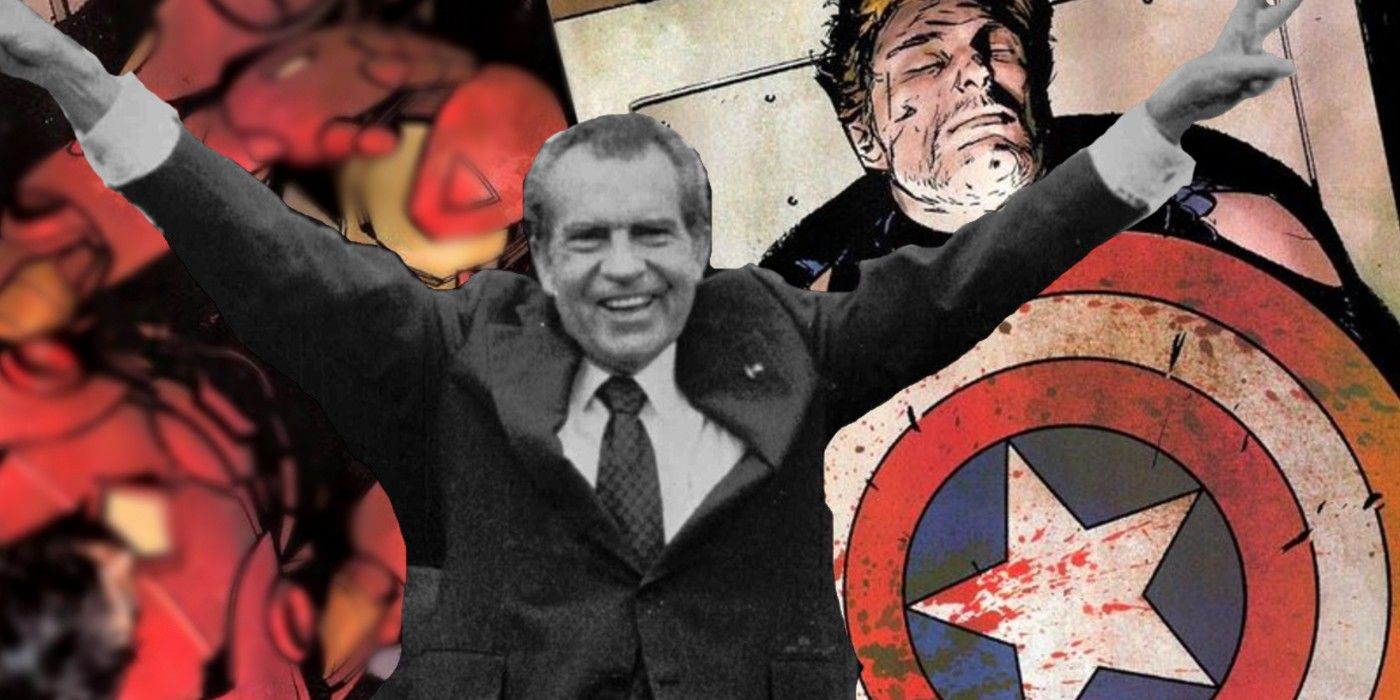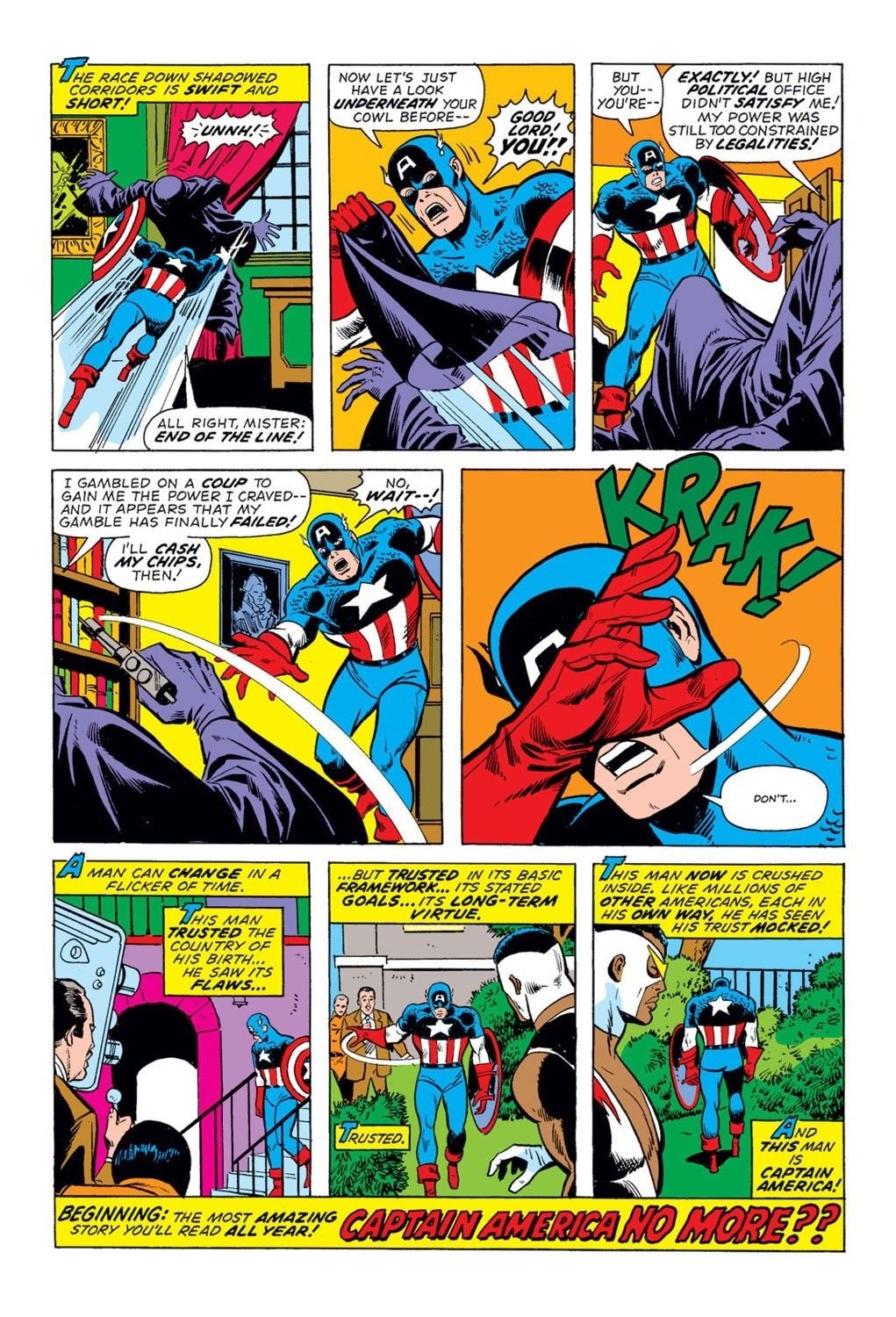Captain America is the definitive patriotic superhero, fighting villains who stand against America, which means no one ever expected him to fight the President of the United States. But that's exactly what happened in a 1974 story that saw none other than President Richard Nixon himself fight Captain America inside the White House. Nixon not only fought Captain America but actually managed to defeat him in one of the Star-Spangled Man's most controversial stories of all time.
Written by Steve Englehart with art by Sal Buscema and colors by George Roussos, 1974's Captain America #175 concluded an arc that saw Steve Rogers take on the members of the Secret Empire (not to be confused with the infamous 2017 "Nazi Captain America" miniseries). An offshoot of (and eventually gaining independence from) the organization Hydra, the Secret Empire sought to conquer America from within; their mysterious leader, Number One, was rumored to be a high-ranking government official. The Secret Empire lands on the White House lawn, and after Moonstone is defeated by a Secret Empire goon (Moonstone was secretly a member as well and staged the entire fight), Number One demands the country's unconditional surrender.
Captain America, the Falcon, and other allies storm the Secret Empire's forces, reveal the deception, and defeat Moonstone. Number One attempts to flee towards the White House, but Captain America tackles him and removes his hood; his face isn't revealed to the reader, but the following dialogue (and an absolutely shocked Captain America) makes his identity abundantly clear. "High political office didn't satisfy me! My power was still too constrained by legalities!" He does, however, admit that his plan to take over the government in a coup has failed. The helpless 'Number One' decides he'd rather die than be captured, and before Captain America can stop him, grabs a pistol and commits suicide.
In a later interview, Englehart removes any doubt that Number One was anyone other than Nixon himself. "I was reacting to Watergate. In those days, there was a real idealism in the air, and the thought that the President of the United States could commit such a crime was unthinkable. I thought there was no way Captain America could just keep fighting the Yellow Claw with that going on." Regarding Nixon's grisly end, Englehart desired a shocking ending to go along with a shocking reveal. "It wouldn’t have been all that interesting if he chased a guy into the Oval Office and the guy said “OK, you got me. Take me away. The country was so hyped up – no one expected Nixon to kill himself – but the whole thing was highly dramatic."
A shocked Captain America, ashamed of his president and his government, would later ditch his superhero moniker and become Nomad, the "man without a country." To date, Richard Nixon remains the only comic book villain to force Steve Rogers to become so disillusioned with his country that he ceased being Captain America altogether. In that respect, Nixon truly defeated Captain America, albeit posthumously. Consider the caption at the end of the final panel: there are no rousing speeches or patriotic summations. Captain America - the man who famously never gives up - simply walks away.
After some deep reconciliation and soul-searching common in works of the 1970s, Steve Rogers would later disposed of Nomad's hideous suit and re-adopted the Captain America name - but this time as a superhero loyal to America's ideas and ideals, not officials. Like many Americans after Watergate, he had learned that the American government is not infallible, nor is it comprised of infallible people. Other presidents in the Marvel Universe would come and go, but President Richard Nixon left a dark, indelible mark on Captain America...in many ways, the same mark he would leave on America itself.


